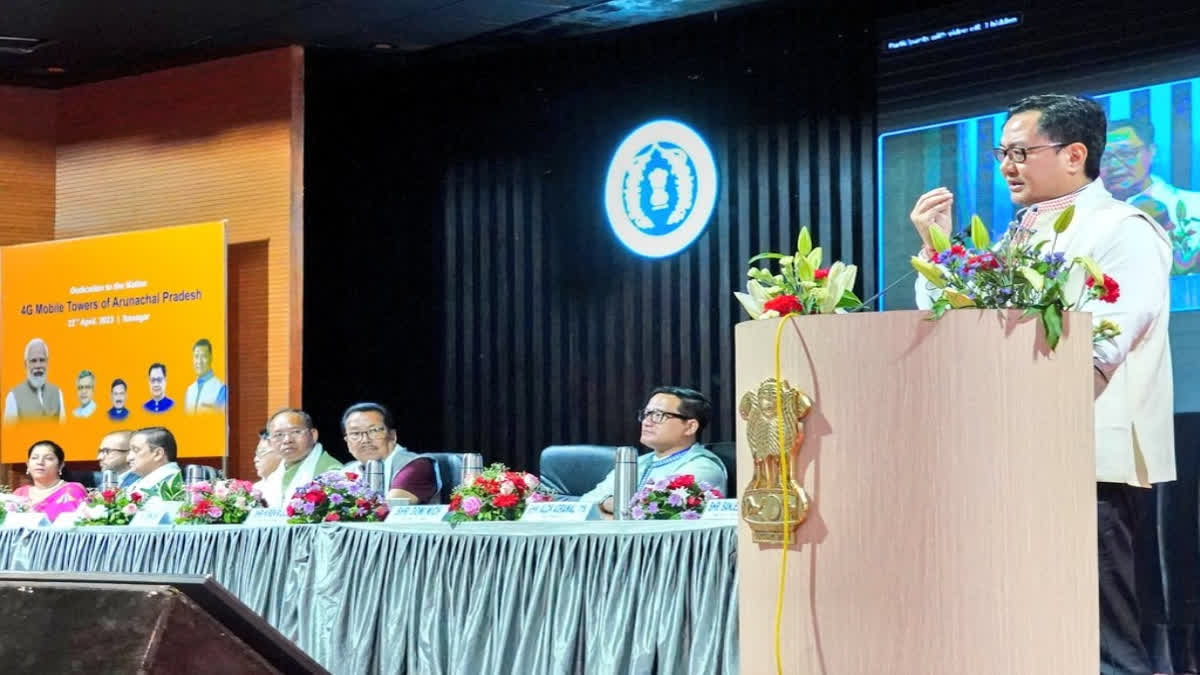Itanagar: Union Law Minister Kiren Rijiju on Saturday described the collegium issue as a "mindgame", saying he will not talk about it. He made the remarks here when asked about the various recommendations of the Supreme Court Collegium pending before the government, including those related to the appointment of high court chief justices.
"The Collegium issue is all about mindgame. I am not going to talk about it," he said. Rijiju was speaking on the sidelines of an event to dedicate 254 mobile towers for 4G services to Arunachal Pradesh. He said the lack of infrastructure facilities in border areas which have tough terrain was a major issue for the locals. Kiren Rijiju and Tapir Gao represent Arunachal Pradesh in Lok Sabha.
Rijiju has been quite vocal against the Collegium system and once even called it "alien to our Constitution" Earlier also the Law Minister had raised concerns over the collegiate system of appointment and transfer of judges in the country, saying the government can do 'very little' to solve concerns arising out of the pendency of cases in the country.
Replying to a question in the Lok Sabha earlier the Union minister said, "In 2015, Lok Sabha and Rajya Sabha had passed the NJAC (National Judicial Appointments Commission). It was also approved by two-thirds of the states. However, the government has very limited options in resolving the crisis. It can't suggest names, outside of the ones recommended by the collegium," he said.
He added that the government has written several times on making the collegium system 'inclusive' of the country's diversity. "We have written several times that the collegium should be made inclusive of the diversity of the country, having people of all castes and religions, with a special focus on women. If we look at the Constitution, the power of appointing judges was vested in the government, after with consultation with judges. However, it changed after 1993."
The Union Law minister further said the problem of vacancies will keep cropping up unless a 'new system' is brought in place. "I don't like saying this but we don't have the system of the Parliament or the people. We are taking several steps to reduce the pendency of cases. But, unless a new system is brought in place for the appointment of judges, the problem of vacancies and pendency will keep cropping up," he said. (With Agency inputs)



